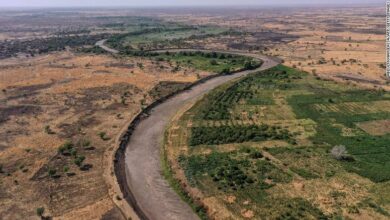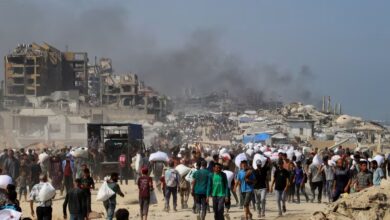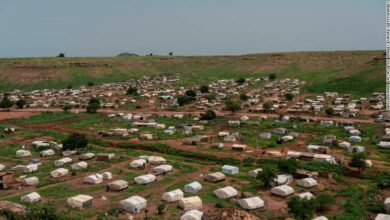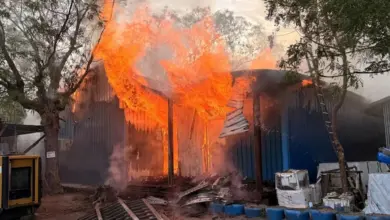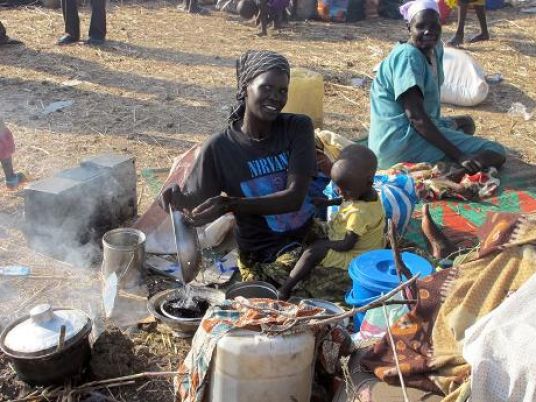
South Sudanese rebels and government negotiators will hold their first face-to-face talks on Sunday, after several days of delay, to thrash out a ceasefire deal and end weeks of ethnic fighting in the world's youngest state.
At a ceremonial opening to the talks at a luxury hotel in the Ethiopian capital Addis Ababa on Saturday, the leaders of the rival delegations hugged, but the faltering start to the negotiations has dampened hopes for a swift end to the violence.
The run-up has been overshadowed by continued clashes between President Salva Kiir's SPLA government forces and rebels loyal to former vice president Riek Machar centered around the strategically located town of Bor.
The talks will focus on when and how to roll out the ceasefire that both sides have agreed to in principle, though neither has indicated a start date.
The head of the rebel delegation in Addis Ababa, Taban Deng Gai, repeated Machar's call for the release of several senior politicians allied to Machar and for the state of emergency imposed by Kiir in two states of South Sudan to be lifted.
"We ask for … the release of political detainees and … free movement and political space for them to join us here," Gai said at the opening ceremony.
Dina Mufti, spokesman for Ethiopia's foreign ministry, told Reuters the direct talks would begin at 1200 GMT on Sunday.
Western and regional powers, many of which supported the negotiations that led to South Sudan's independence from Sudan in 2011, are pressing for a peace deal, fearing the new fighting could slide into civil war and destabilize east Africa.
Clashes have already killed more than 1,000 people, driven 200,000 from their homes and rattled oil markets.
The U.S. State Department said the talks were "of critical importance to the people of South Sudan" and said the parties must use them to "make rapid, tangible progress on a cessation of hostilities, humanitarian access, and the status of political detainees."
"There can be no military solution to this conflict. Forging a durable and lasting peace depends on resolving the underlying political causes of the conflict," State Department spokeswoman Marie Harf said in a statement.
"We urge the Government of South Sudan to uphold its commitments and release political detainees immediately. To be meaningful and productive, discussions of political issues requires the presence of the senior SPLM members currently detained in Juba, among others," she said, referring to the ruling Sudan People's Liberation Movement.
South Sudan announced late last month the release of eight of 11 senior politicians arrested over an alleged coup plot against Kiir but said it would continue to hold three of the most prominent figures – ex-Finance Minister Kosti Manibe, ex-Cabinet Affairs Minister Deng Alor, and the former Secretary General of the SPLM Pagan Amum.
Machar had demanded the release of all 11 as a condition for negotiations.
Harf said the presence at the talks of U.S. special envoy to South Sudan, Donald Booth, underscored Washington's "enduring commitment to peace, reconciliation, and a unified, democratic South Sudan."
Quiet capital
A rebel spokesman in northern Unity state told Reuters rebel columns were closing in on South Sudan's capital Juba, though there was no independent confirmation and the SPLA has regularly dismissed similar reports over the past week.
South Sudan remains one of the continent's least developed countries for all its crude reserves, estimated by BP to be sub-Saharan Africa's third largest.
The fighting erupted on December 15 in Juba and rapidly spread across the country, which is about the size of France, along ethnic faultlines.
The streets of Juba were quiet on Saturday as rumors swirled around the city of a rebel advance on the capital. Many businesses remained closed.
"Fighting will not resolve these issues. This is political and should be dealt with politically," said 30-year-old marketing executive Francis Logali.
Kiir is from the country's Dinka group while Machar is a Nuer. The two tribal groups have fought each other in the past for domination, influence and resources.
Kiir has accused his long-term political rival Machar, whom he sacked in July, of starting the clashes in a bid to seize power and arrested 11 senior political figures he said were involved in the alleged plot.
Machar dismissed the accusation but he has acknowledged leading soldiers battling the government. He has accused Kiir of purging political opponents within the ruling SPLM party ahead of elections next year.
In a sign of deteriorating security, the United States on Friday ordered more of its embassy staff out of South Sudan and advised all other U.S. citizens to leave.

